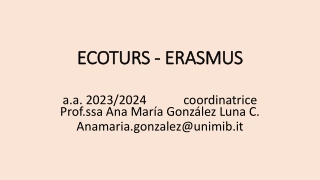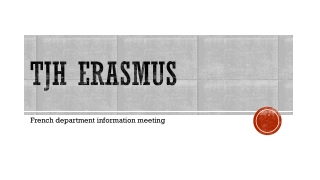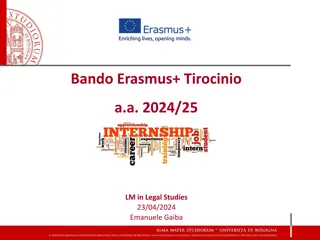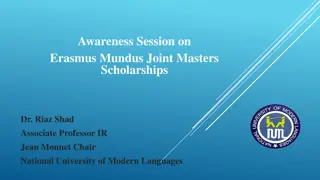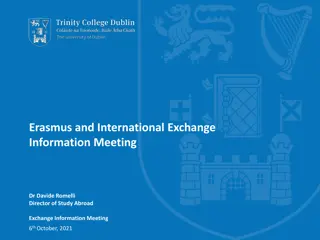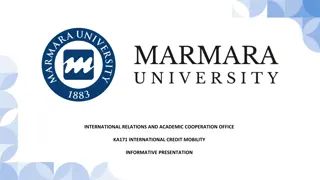
Civil Procedural Law at National and Kapodistrian University of Athens
Dive into the world of Civil Procedural Law at the National and Kapodistrian University of Athens School of Law with Prof. Dr. Nikolaos M. Katiforis. Explore the definition, sources, and distinctions of civil procedure, shedding light on the legal protections of rights and interests in private law.
Download Presentation

Please find below an Image/Link to download the presentation.
The content on the website is provided AS IS for your information and personal use only. It may not be sold, licensed, or shared on other websites without obtaining consent from the author. If you encounter any issues during the download, it is possible that the publisher has removed the file from their server.
You are allowed to download the files provided on this website for personal or commercial use, subject to the condition that they are used lawfully. All files are the property of their respective owners.
The content on the website is provided AS IS for your information and personal use only. It may not be sold, licensed, or shared on other websites without obtaining consent from the author.
E N D
Presentation Transcript
Lecture I Lecture I National and Kapodistrian University of Athens School of Law Erasmus Winter semester 2023-2024 Civil Procedural Law Prof. Dr. Nikolaos M. Katiforis
1. Definition of the term CIVIL PROCEDURE 1. Definition of the term CIVIL PROCEDURE Civil Procedure is defined as the totality of the rules which determine the organs, the prerequisites and the procedure of legal protection of the rights and interests of private law.
2. Distinction from other types of procedure 2. Distinction from other types of procedure Separate systems of Courts and rules of procedure Courts and rules of procedure Separate systems of Each branch of substantive law must be materialized by means of the appropriate supplementary complex of rules, supplying suitable methods and forms, whereby the wronged citizen may validly gain an enforceable remedy guaranteed by the State (e.g. Criminal Procedure, Tax Disputes Procedure etc.).
3. Sources of Civil Procedural Law 3. Sources of Civil Procedural Law 3.1. The Constitution Judicial Power (Fundamental rules and principles with regard to the administration of Justice (the wright of access to courts, etc.). 3.2. The Code of Civil Procedure The Code of Civil Procedure, in its present form, consists of eight Books. The first Book comprises the General Provisions (Art. 1-207), while part of the second Book (Art. 208- 334) deals with the Procedure before the Courts of First Instance . Art. 335-465 of the second Book are devoted to Evidence . The rest of the provisions of this Book (Art. 466- 494) contain some particular rules for small claims and actions seeking an accounting for partition. Appeals and other Method of Review are treated in the third Book (Art. 495- 590),while the forth Book provides for the Particular Proceedings (Art. 591-636) and the fifth Book for Provisional Remedies (Art. 682-738), the seventh Book Arbitration (Art. 867-903) and the eighth Book Enforcement Proceedings (Art. 904-1054).
3. Sources of Civil Procedural Law 3. Sources of Civil Procedural Law 3.3. The Code of the Organization of the Courts of 1988 3.4. Special Laws 3.5. International Conventions The European Convention of Human Rights (its Art. 6 1 being of fundamental procedural significance) was ratified in 1974. The Brussels Convention (on Jurisdiction and the Enforcement of Judgments in Civil and Commercial Matters of 1968), as amended (Ratification Law: 1814/1988), which has been replaced by Council Regulation 44/2001 since 1 March 2002 and currently by Regulation 1215/2012, in force since 10 January 2015. The Hague Convention of 15 November 1965 on the Service Abroad of Judicial and Extrajudicial Documents in Civil or Commercial Matters. Etc. 3.6. Customary Law
4. Characteristics of the Procedure 4. Characteristics of the Procedure 4.1. The Principle of Free Disposition of the Parties The power to determine whether or not to commence a civil action, or to specify the extent of the contested claims, belongs entirely to the parties. 4.2. The Principle of Party Presentation The Court may take into consideration only facts alleged and proven by the parties. 4.3. The Principle of Parties Motion All procedural acts have to be carried out on the motion of the parties, unless otherwise provided.
4. Characteristics of the Procedure 4. Characteristics of the Procedure 4.4. The Principle of Concentration This principle rejects the possibility of the parties submitting their factual allegations at anytime throughout the unfolding of the case. 4.5. Oral and written Procedure After successive amendments, the Code of Civil Procedure, in its present form, has introduced a mixed system, combining both oral and written procedures, basically depending on the nature of some specific disputes. 4.6. Role of the Judge Notwithstanding restrictions deriving from the principle of party presentation, the court has the duty to intervene and help the parties to properly expose their factual statements.
5. Fundamental Guarantees Greece is also party to the Convention of Rome for the Protection of Human Rights and Fundamental Freedoms of 4 November 1950, with its Protocols. Fundamental Guarantees of this Convention, and more specifically its Art. 6 1, have consequently become an integral part of domestic Greek law and prevail over any contrary provision of the law (Art. 28 1 of the Constitution). Establishment of Courts by Law: According to Art. 8 1 of the Constitution, No person shall against his will be deprived of the judge assigned to him by law . Independence and Impartiality of the Judiciary: Judges. .. enjoy functional and personal independence. Judges shall in the discharge of their duties be subject only to the Constitution and the laws (Art. 87 1, 2 of the Constitution). Review of Unconstitutional Ordinary Legislation: The courts shall be bound not to apply laws, the contents of which are contrary to the Constitution (Art. 93 4 of the Constitution).
5. 5. Fundamental Guarantees Fundamental Guarantees Access to Justice: According to Art. 20 1 of the Greek Constitution, Every person shall be entitled to receive legal protection by the courts as specified by law . Through a wider wording than that of the German Constitution (Art. 19 4 of the Grundgesetz), this provision is regarded as belonging to the highest level of constitutional guarantees and as containing a procedural individual right. It is more particularly defined as guaranteeing the rendition of a judicial decision on its merits (Justizgew hrungsanspruch), in the sense of the right to a due process of law and to a completely accessible, accelerated and effective system of justice. It is accordingly considered as covering all forms of legal protection (cognitive proceedings, provisional remedies and enforcement proceedings). Right of defence (Art. 20 2 of the Greek Constitution). Equality of the parties (Art. 4 1 of the Constitution). Publicity (Art. 93 2, 3 of the Constitution). Reasoning of Judicial Decisions (Art. 93 3 of the Constitution).


